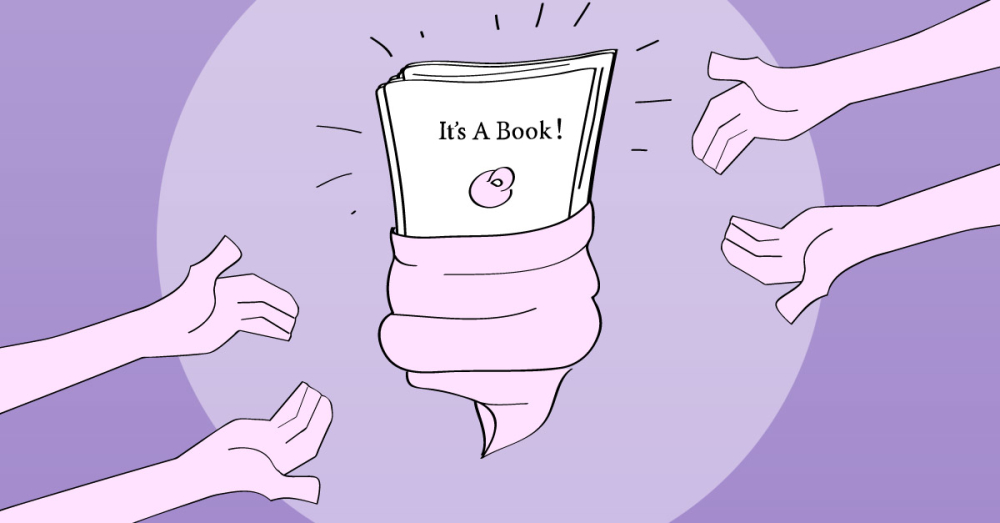BREAKING: Not Everybody Thinks Your 'Baby' is Beautiful; Get a Beta Reader

Here’s a metaphor I hate: books as babies. It’s an understandable one, to some degree. The idea for your book gestated for eons, you molded your whole life around its realization, you believe in it, you’re excited about it—and now, after all of your planning, it’s finally here! You’re ebullient, and you want to share your “baby” with the world.
Here’s the part of that metaphor that bites back, though: your conviction that your “baby” is perfect will not necessarily be shared by lookers-on. Family members will exclaim over it, that’s a given. Friends may be at least willing to pretend. But if you’re curious about more objective reactions, it’s best to engage an outsider’s perspective.
Your manuscript is finished? Congratulations. Now, before you do anything with it, please consider finding a beta reader.
What? A beta reader is an impartial person who is willing to read your manuscript and proffer helpful feedback. These aren’t copy editors. They’re more likely to point out plot inconsistencies than they are to gesture to a comma splice on page five (though if you find someone that punctilious: lucky you!). A beta reader is more a manifestation of the Anonymous Future Reader you’re ultimately courting, and whose feedback you might otherwise receive too late. They aren’t generally paid; these are the good fairies of the literary world, willing to dispense helpful advice with perhaps only the hope that you’ll return the favor.
Who? More to the point: who not. Your beta reader should not be someone in your immediate family, a best friend, or your third-grade teacher. You want someone whose first priority is going to be honesty, not protecting your feelings. Your mom is always going to think that your work is brilliant, which makes her a great cheerleader, and a poor choice to test the temperature of a general readership.
You should look, instead, for a benevolent stranger (or, as one beta expert suggests, a new friend), someone who is interested in the general success of books, and who won’t be afraid to tell you where yours falls short. As a general rule: if someone who you’d feel silly quoting on your jacket has given you positive feedback, they’re maybe not the most objective, or your target, audience.
When choosing your beta reader, try to hit these points:
1) A fellow reader/writer. You’re not going to have any luck finding beta readers among people who say “yuck!” to books anyway. The writer part may become important when it comes to reciprocity—someone who’ll expect a close read from you later is going to be extra attentive with your manuscript. It’ll also help soften the delivery: fellow writers know how much time and energy goes into writing a book, so they’ll be conscientious about how they deliver their critiques.
2) Your target audience. If you’ve written a romance and someone who primarily reads Toni Morrison is willing to read it: that’s very nice of them, but you might not get the most helpful feedback. Who do you imagine will pick up your book while browsing? Factor in age and interests. Imagine their favorite books—books that have primed them to read and interact thoughtfully with yours. Character build, if you will. Now, go forth and find that exact person—or someone very like them. You don’t want to waste time on either side by handing your manuscript over to someone who is predisposed to dislike it.
3) An expressive individual. You’re already helping yourself out by not choosing someone who’s going to agonize over what criticism might do to your relationship. With a beta reader: co-reading is the purpose of your relationship. Now, be sure you’re also choosing someone who’s comfortable expressing opinions amply. You’re not looking for a succinct “this is good” or “there were elements that I didn’t love.” You want someone who’s going to name problems (and successes) and tell you why they are problematic (or successful).
When? When your manuscript is done. Writing circles are for feedback during the process; a beta reader gives you the lowdown on what readers might think of the product you’re ready to send off to publicists or editors or to self-publishing houses. You’ve done the work; now you get to hear what people think of it in its entirety, and before you’ve done anything irreversible.
Why? I’ve alluded to this above, but it’s worth reiterating: you don’t want to send a book off to press without any insights into how general audiences are going to react to it. Everyone you know and love has read your manuscript and thinks it’s brilliant, and that’s great—but they were suckers for your first sales anyway. You don’t have to “sell” people who love you.
From the reviewer’s side: I cannot tell you how frustrating it is to read a book with potential, but that you’re forced to rate down over mistakes that a beta reader would have caught. Consistently bad grammatical habits and malapropisms are one thing, but it’s the major plot inconsistencies or looming questions that distress me most. “This novel could have been great IF—” is not something you want to hear for the first time at the review stage.
Catch the gaping holes before you’ve committed to a self-publishing deal—or, more accurately, let an outside reader catch them for you. You might think that your character is a super believable Lothario; it’s helpful if an outsider concurs. You might think that your plot twist is both shocking and logical; make sure others won’t find it discombobulating.
How? Writer’s circles. Creative writing workshops. Online forums. You connect with fellow writers and, after an appropriate amount of time has passed, you float the idea of a beta-read. You should be familiar with people’s writing tastes, availability, and flexibility before you suggest the exchange. Don’t take advantage!; a beta-relationship is something that, on a face-to-face basis, it takes time to develop. (I’m signed up to beta-read for a friend from my college creative writing workshop when she finishes her manuscript; she’s expressed interest in doing the same for me. I have no idea how close either of us is to a beta-ready project, but we definitely did not rush the agreement. Think in terms of years, not weeks.)
If you’re going to go the Online forum route, there’s a Goodreads group ready for your participation.
Final Note: never give your beta grief. I can’t emphasize this enough. Prickly author feedback sends once-willing betas running for the hills, and no one in the greater writer’s community is going to be very happy with you if you chase a good one off. Your response to beta-reader feedback should be simple and succinct: THANK YOU. Seriously. Nothing more than that (maybe flowers; definitely a signed first edition). Beta readers are doing you a favor! It is not your job, or your place, to give them feedback on their feedback. Take their comments into consideration and move forward—hopefully toward conscientious edits.
What do you think? Take to the comments to share your experiences with beta readers (or as a beta reader). Tips always welcome!

Michelle Schingler is associate editor at Foreword Reviews. You can follow her on Twitter @mschingler or e-mail her at mschingler@forewordreviews.com.
Michelle Anne Schingler
